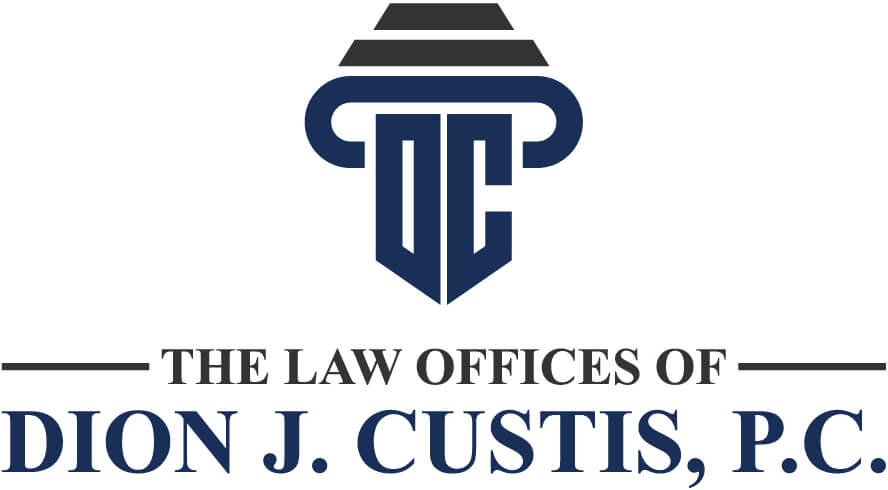How Does a Criminal Case Usually Play Out from Start to Finish in Colorado?
If you or a loved one has been charged with a crime, one of your biggest concerns is probably: What happens next? The legal system can feel like a maze — full of unfamiliar terms, confusing timelines, and serious consequences.
Knowing what to expect can help you feel more in control. From arrest to final outcome, every stage of the case presents opportunities — and risks. That’s why it’s so important to have the guidance of a skilled attorney focused on criminal defense in Colorado.
This page walks you through the full criminal process in Colorado, step by step — so you know where you stand and what’s coming.
Step 1: The Arrest or Citation
The process usually begins with an arrest or a criminal citation. You may be arrested on the spot (such as during a traffic stop or police call), or after a warrant is issued.
In less serious cases, the police may issue a summons — a written order to appear in court, rather than taking you into custody.
No matter how your case begins, the most important thing to do is exercise your right to remain silent and ask for a lawyer. This starts your criminal defense in Colorado the right way.
Step 2: Booking and Bond
If you are arrested, you’ll be taken to a local jail where you’ll be booked — photographed, fingerprinted, and formally processed.
Depending on the charge, you may be:
- Released on your own recognizance (ROR)
- Allowed to post bail or bond
- Held until a court hearing is scheduled
At this stage, your attorney may file a bond motion to argue for your release or a lower bail amount. An experienced criminal defense in Colorado can help you avoid unnecessary jail time.
Step 3: First Appearance / Advisement
Within 48–72 hours (excluding weekends), you’ll appear before a judge. This is called the advisement hearing, and it’s where:
- The judge informs you of the charges
- You are reminded of your rights
- Bail may be reviewed
- You receive your next court date
You typically do not enter a plea yet — that comes at the arraignment. Still, it’s a critical moment for your attorney to advocate for you and influence the course of the case early on.
Step 4: Arraignment
The arraignment is your formal first court appearance in the case. At this stage:
- The prosecution files formal charges
- You (or your attorney) enter a plea: Guilty, Not Guilty, or No Contest
- A schedule is set for the next steps (pretrial conferences, motions, etc.)
Pleading Not Guilty is common at this stage — it gives your attorney time to review the evidence and determine the best course of action for your criminal defense in Colorado.
Step 5: Discovery and Investigation
Once the case is active, the discovery process begins. This is where the prosecution shares the evidence they plan to use against you, such as:
- Police reports
- Surveillance footage
- Witness statements
- Lab or forensic test results
- Bodycam or dashcam footage
Your attorney also launches a defense investigation — looking for favorable evidence, interviewing witnesses, and identifying inconsistencies.
Discovery is often where strong criminal defense in Colorado strategies are formed. If the evidence is weak or flawed, your attorney may file motions to have it suppressed or challenge the case outright.
Step 6: Pretrial Motions
Pretrial motions allow your defense attorney to ask the court to take certain actions — and they can make or break a case.
Common motions include:
- Motion to suppress evidence (due to illegal search or seizure)
- Motion to dismiss charges (due to lack of evidence or procedural error)
- Motion for change of venue (if a fair trial can’t be held in the current county)
Many successful outcomes in criminal defense in Colorado happen at this stage — sometimes before a trial is even necessary.
Step 7: Plea Bargaining
Before trial, the prosecution may offer a plea bargain — a negotiated agreement in which you plead guilty to a lesser charge or accept a specific sentence in exchange for avoiding trial.
Plea bargains can result in:
- Reduced charges (e.g., felony to misdemeanor)
- Avoidance of jail time
- Deferred judgment or probation
- Keeping certain rights (e.g., driver’s license, job eligibility)
Your attorney will weigh the pros and cons of any plea deal and help you decide whether to accept it or proceed to trial.
Step 8: Trial
If the case isn’t dismissed or resolved through a plea, it proceeds to trial. This is the most high-stakes part of a criminal case — and where a strong criminal defense in Colorado is absolutely essential.
At trial, the process includes:
- Jury selection (unless waived)
- Opening statements by both sides
- Presentation of evidence and cross-examination of witnesses
- Closing arguments
- Jury deliberation and verdict
If you’re found Not Guilty, your case is over — and you walk free. If found Guilty, the court moves on to sentencing.
Step 9: Sentencing
Sentencing occurs shortly after a guilty plea or conviction. The judge considers:
- The severity of the offense
- Your criminal history
- Victim impact statements
- Mitigating or aggravating factors
You may face:
- Jail or prison time
- Probation
- Fines or restitution
- Community service
- Counseling or treatment programs
Your defense attorney can present evidence and arguments to reduce your sentence or request alternatives to incarceration.
Step 10: Post-Conviction Options
If convicted, you still have rights — and your lawyer can pursue:
- Appeals
- Sentence modifications
- Motions for a new trial
- Petitions for record sealing (when eligible)
An experienced team in criminal defense in Colorado stays with you long after trial, helping you navigate the next steps and minimize the impact on your life.
Real-World Example: Dismissed Before Trial
A Colorado man was charged with felony assault after a bar incident. During discovery, his attorney obtained surveillance footage showing that the alleged victim was the aggressor.
A pretrial motion to dismiss was filed, and the prosecutor dropped the case — saving the client from jail, a felony record, and public trial.
This outcome was only possible because his lawyer began building a strategic criminal defense in Colorado immediately after the arrest.
What Can Delay a Criminal Case in Colorado?
Criminal cases can sometimes take months — or even over a year — to resolve, depending on:
- Complexity of the charges
- Amount of evidence to review
- Scheduling availability of courts and attorneys
- Requests for continuances (from either side)
Your attorney can help you understand and manage these timelines — and push for timely resolution when it benefits your defense.
What If You’re Charged But Never Arrested?
In some cases, people are not arrested right away but later discover that charges have been filed. This can happen if:
- A warrant is issued after an investigation
- The prosecutor reviews a case file and decides to proceed
- You’re mailed a summons or court date instead of being arrested
Even if you haven’t been taken into custody, the case is active — and you need a criminal defense in Colorado as soon as possible.
Final Thoughts: You Don’t Have to Go Through This Alone
Facing criminal charges is overwhelming. But knowing the process — and having the right legal team beside you — changes everything.
From arraignment to resolution, your defense attorney is your voice in the courtroom, your guide through the chaos, and your advocate when it matters most.
No matter where you are in the process, it’s not too early — or too late — to fight for your future.
What to Do Next
Charged with a crime in Colorado? Take control of the process now.
- Call today for a free consultation
- Learn exactly what to expect — and how we can help
- From start to finish, we’ll protect your rights every step of the way
Meet Dion Custis: A Criminal Defense Lawyer in Colorado Who Knows How to Win
For over 30 years, Dion J. Custis has fought for people just like you — individuals facing criminal charges and unsure of what comes next. Licensed in both Colorado and Wyoming, he’s handled thousands of cases in state and federal courtrooms, including:
- Felony assault charges
- Self-defense claims
- Allegations involving police officers
- Complex, high-stakes trial cases.
You don’t need to know the law. You need a criminal defense lawyer who knows how to use the law to protect you.

What our Client Says about Us
Start Building Your Defense Now — While You Still Have Time
You’ve got one shot to protect your name, your job, your record, and your freedom. Make it count. Don’t Face the System Alone — Schedule a Free Criminal Case Review Today.
